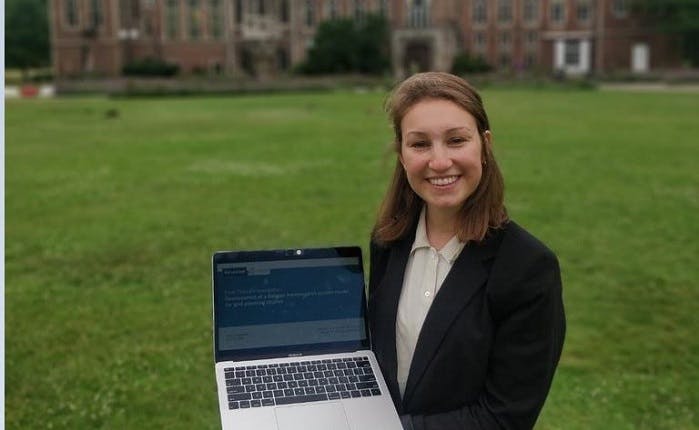InnoBlog: Writing a Master’s thesis: secrets to success

Writing a Master’s thesis is a major part of your Master’s programme. Here’s what to keep in mind as you embark on the journey.
A Master’s thesis is an original piece of work that is the culmination of your education: it is meant for you to dig deep into a topic, research or expand on it, and demonstrate everything you have learned within the Master’s programme.
Therefore, it’s important to choose a thesis topic that interests you and offers room to explore.
For EIT InnoEnergy students
For EIT InnoEnergy Master’s students, the Master’s thesis is organised under the second year university. Depending on where you go, there is quite some variation amongst the format of the thesis: whether you do it at the university or at a company, whether it is done domestically or if there are international opportunities, and whether it is done for a semester, over the summer, or year-round.
A personal experience
For me, my second year university was KU Leuven in Belgium. Leuven offers an excellent, organised approach to selecting your thesis topics: a list comes out in March, well ahead of the autumn semester. You then choose your top preferences and are assigned a topic.
Leuven is unique in that the thesis is performed year-round: you begin upon arrival in September, have a midterm presentation in December, and conclude at the end of the second semester in June (or alternatively, at the end of the summer, in August). This structure is especially conducive for those interested in pursuing a PhD after the Master’s programme, like my friends here.
Tips and tricks for success
How can you ensure success with your thesis? My first recommendation is to establish good communication with your advisor(s): this can include PhD or post-doc students, a daily supervisor, your promoting professor, or contacts at the company. Make sure the research questions and objectives of your work are clear. Set up regular meetings as necessary.
Since the Master’s thesis is a multi-month project, it can be easy to lose sight of your end goal. Ask your advisors and friends to hold you accountable, and report to each other your progress. My friends and I met everyday to work on our theses together, and their support and comradery greatly motivated me.
Be sure to also utilise resources at your university; many universities offer thesis workshops covering a variety of topics, including academic writing, intellectual integrity and plagiarism, and information literacy.
Lessons learned
For my thesis, I worked on developing a Belgian transmission system model for grid planning studies. I used my previous coursework – particularly in power systems analysis, optimisation for energy systems – as a starting basis. But throughout the year, I also learned new skills in programming in Julia and PowerModels, statistical analysis, and more. In this sense, my thesis tied in many different things I learned over the course of the Master’s programme, but I also learned a lot over the course of the thesis itself.

